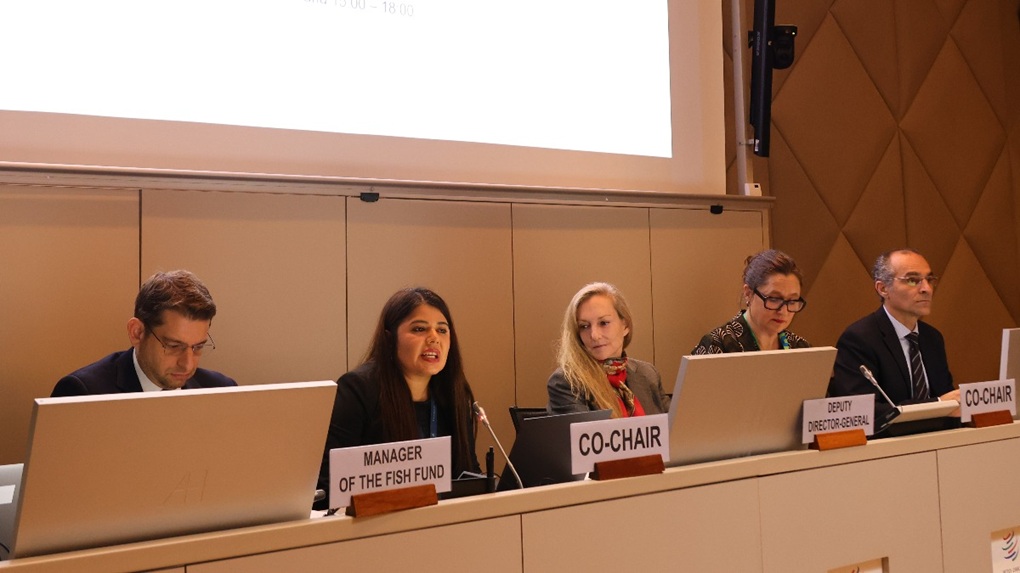The World Trade Organization (WTO) Fish Fund Steering Committee has approved 26 requests for project grants totalling $US2.9 million (approx. $FJ6.6m) to support developing and least-developed country (LDC) members implement the WTO Agreement on Fisheries Subsidies.
The WTO Agreement on Fisheries Subsidies was adopted at the 12th Ministerial Conference in 2022.
It entered into force on September 15 this year after two-thirds of WTO members had formally accepted the Protocol of the Agreement on Fisheries Subsidies – by depositing an ‘instrument of acceptance’ with the WTO – bringing the Fish Fund’s grant and disbursement mandate into full effect.
A total of 116 WTO members have submitted their instrument of acceptance, and includes Fiji, and neighbouring Australia, New Zealand, and Tonga.
This landmark Agreement on Fisheries Subsidies commits ratifying members to curb billions of dollars in annual spending on the most harmful subsidies that contribute to the depletion of marine fish stocks.
The Fish Fund Steering Committee made the approval for the funding requests at its meeting on November 18-19.
The WTO Fisheries Subsidies Funding Mechanism, or known as the Fish Fund, was established under Article 7 of the WTO Agreement on Fisheries Subsidies.
This is a voluntary funding mechanism established to assist developing and least-developed country WTO members and it supports those members with the implementation of the agreement, and acts as a catalyst for enhancing the sustainability of oceans and marine life.
It also provides technical assistance and capacity-building needed to implement the new obligations and manage their own fisheries more sustainably.
Developing and LDC members that have ratified the agreement are eligible to submit funding requests to support their implementation of the agreement.
The Fish Fund operates in cooperation with relevant international organisations, including the UN Food and Agriculture Organization (FAO), the International Fund for Agricultural Development (IFAD) and the World Bank.
It has received voluntary contributions from WTO members for the last three years. So far, the contributing members are Australia, Canada, the European Union, Finland, France, Germany, Iceland, Japan, Republic of Korea, Liechtenstein, the Netherlands, New Zealand, Norway, Portugal, Spain, Sweden, the United Arab Emirates (UAE) and the United Kingdom.
To date, according to the WTO, the Fish Fund has deposits, commitments and pledges that amount to more than $US18m (approx. $F41m).
At the Fish Fund Steering Committee meeting last week, WTO deputy director-general Jennifer DJ Nordquist underlined how the Fish Fund fulfilled the pledge made to WTO members of having a fully operational financing mechanism in place by the time the Agreement on Fisheries Subsidies entered into force.
She also highlighted the fragility of the world’s marine resources.
“The Steering Committee’s deliberations and decisions on projects that will have a direct and positive impact on the sustainable management of fish stocks could not be more important,” Ms Nordquist said.
She also acknowledged the donors’ contribution and praised developing and LDC members for making use of the Fund to support their implementation of the agreement.
The Steering Committee of the Fish Fund is made up of 16 WTO members representing contributors to, and beneficiaries of, the Fund.
These are Australia, Barbados, Canada, France, Gambia, Haiti, Iceland, Japan, Mauritius, Netherlands, Peru, Philippines, Seychelles, Sierra Leone and Spain.
Since early June this year when the Fund launched its first call for proposals, inviting eligible members to submit requests for project grants with an October deadline, the WTO said 17 members had pledged the equivalent of more than $US18m to the Fish Fund.
According to the WTO, to oversee implementation of the agreement, a Committee on Fisheries Subsidies will be established to maintain regular dialogue on members’ fishing practices and subsidies, and to increase transparency on governments’ practices.
This committee will be responsible for examining all information submitted by members in accordance with notification requirements; and it will also review the operation and implementation of the agreement annually, reporting to the WTO Council for Trade in Goods.
In the committee, members will maintain regular dialogue on their subsidised fishing practices, allowing for fisheries subsidies information to be centralised and for increased transparency of governments’ practices. The committee will elect its own chair and will meet not less than twice a year.
The WTO said that no later than five years after the agreement’s entry into force, the committee will review the agreement’s operations to identify potential modifications.
Meanwhile, the Steering Committee has also agreed at its meeting to launch a second call for funding requests in early 2026.
The WTO estimates that governments spend $US22billion (approx. $F50bn) a year in subsidies top expand fishing capacity, contributing to overcapacity, overfishing and other practices that deplete fish stocks and undermine efforts to achieve sustainable fisheries. By prohibiting the worst forms of harmful fisheries subsidies, the WTO Agreement on Fisheries Subsidies can help to limit and reverse the depletion of the world’s fish stocks, and protect the livelihoods of more than 260m people worldwide and communities that depend on fisheries for food, income and employment.



